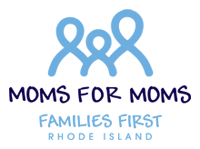



Postpartum Depression
|
|
|
|
|
|
|
|
|
|
|
|
|
|
|
|
|
|
|
|
|
|
Do I have a Postpartum Mood Disorder (PPMD)?
Pregnancy and childbirth is one of life’s most exciting and stressful times for a woman. There are many adjustments coming at you, some expected and some not. When you add the hormonal component, it is no wonder that many women find themselves in very challenging emotional territory. Some of the following symptoms are normal but too many of them can indicate a Postpartum Depression. This medical condition occurs in one out of five women within a year of giving birth. Onset can be gradual or rapid and can include depression, anxiety, and panic attacks.
What are Some Symptoms of PPMD?
- Feeling hopeless or helpless
- Sleep problems (can’t sleep even when the baby is sleeping)
- Extreme irritability
- No appetite or eating too much
- Excessive worry
- Anxiety
- Panic attacks
- Feeling disconnected from your baby
- Uncomfortable and/or intrusive thoughts
- Unable to cope with daily routines
- Lack of ability to enjoy life, even your new baby
- Extreme fatigue
- Social withdrawal
- Lack of motivation
- Crying a lot
- Feeling guilty
- Having trouble remembering and concentrating
- Having thoughts of hurting yourself or your baby
What PPMD is NOT
- PPMD is Not something to be ashamed of
- It is Not your fault
- It is Not a sign of a weak personality
What PPMD is:
- It is easily treatable
- It needs an evaluation by a medical professional such as a Psychiatrist, Clinical Nurse Specialist, or a Licensed Independent Social Worker(LICSW)
- A treatable problem that your OB or Primary Care Physician needs to know about
Sources:
Postpartum Support International, Developing a Sustainable Perinatal Social Support Network In Your Community, First Edition, June 2007
Beyond the Blues: A Guide to Undrstanding and Treating Prenatal and Postpartum Depression by Shoshana S.Bennett, PHD. and Pec Indman, Ed.D., MFT

©
Families First RI. All rights reserved. Families First is a 501(c)(3) organization providing support for Postpartum depression.
All donations are tax deductible. Our mailing address: 777 Ocean Avenue, Cranston, RI 07777

